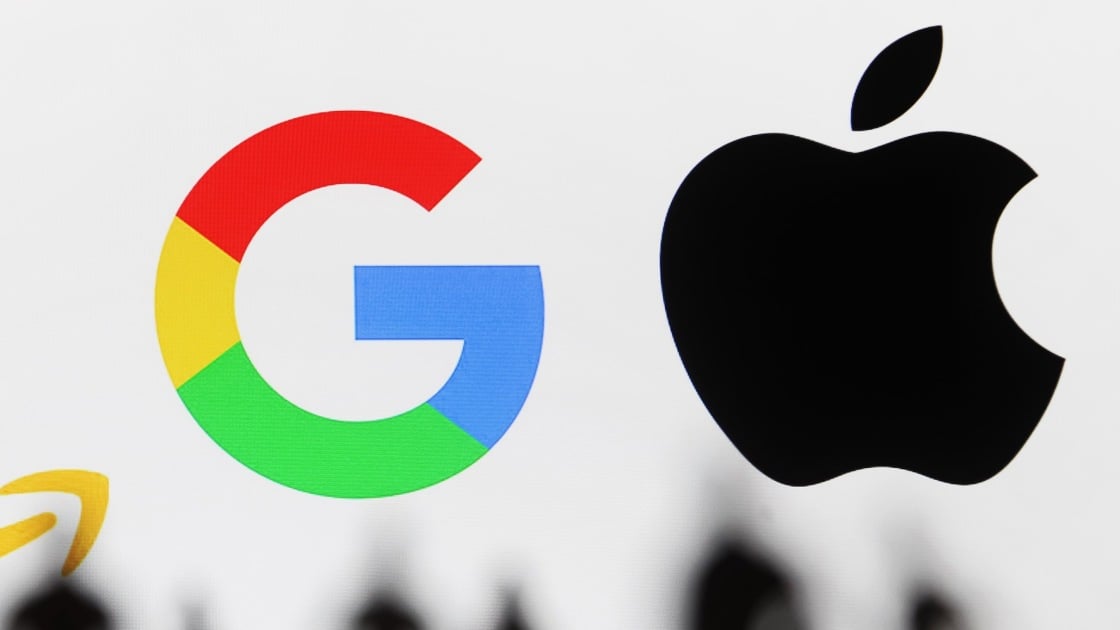As online scammers continue to harass consumers, the European Union is investigating whether major companies, including Apple, Google, and Microsoft, are doing enough to stop the threat.
The European Commission today announced it had sent letters to the “Apple App store, Booking.com, Bing, Google Play, and Google Search on how these platforms and search engines identify and manage risks related to financial scams.” The goal is to learn how companies detect and crack down on fraudulent content, including malicious mobile apps that impersonate legitimate banking and financial products.
“For Booking.com, this concerns fake accommodation listings designed to trick users into making payments that never result in an actual booking,” the commission says. “For Bing and Google Search, the request covers links and ads that lead users to fraudulent websites, often resulting in financial losses.”
In addition, the inquiry asks how the Apple App Store, Google Play, and Booking.com verify the legitimacy of businesses that use their platforms. It also requests details about the companies’ advertising databases, which can be used to detect patterns and flag scam activities.
All the major companies have strict policies and a team devoted to shutting down scams. Still, the EU’s top tech official, Henna Virkkunen, told The Financial Times: “We have to make sure that online platforms really take all their efforts to detect and prevent that kind of illegal content.”
Recommended by Our Editors
The investigation comes as fraud losses in the US continue to rise, reaching $12.5 billion last year, up from $10 billion the previous year, according to the Federal Trade Commission. That said, the fraud comes from a wide variety of schemes and channels, including phone calls and text messages, along with romance and investment scams.
Under the EU’s Digital Services Act, major online platforms must protect consumers from illegal content. This includes conducting annual risk assessments and implementing “reasonable, proportionate and effective mitigation measures.” Otherwise, providers risk fines up to 6% of their global revenue per violation.

Get Our Best Stories!
Stay Safe With the Latest Security News and Updates
Thanks for signing up!
Your subscription has been confirmed. Keep an eye on your inbox!
About Our Expert

Michael Kan
Senior Reporter
Experience
I’ve been a journalist for over 15 years. I got my start as a schools and cities reporter in Kansas City and joined PCMag in 2017, where I cover satellite internet services, cybersecurity, PC hardware, and more. I’m currently based in San Francisco, but previously spent over five years in China, covering the country’s technology sector.
Since 2020, I’ve covered the launch and explosive growth of SpaceX’s Starlink satellite internet service, writing 600+ stories on availability and feature launches, but also the regulatory battles over the expansion of satellite constellations, fights with rival providers like AST SpaceMobile and Amazon, and the effort to expand into satellite-based mobile service. I’ve combed through FCC filings for the latest news and driven to remote corners of California to test Starlink’s cellular service.
I also cover cyber threats, from ransomware gangs to the emergence of AI-based malware. Earlier this year, the FTC forced Avast to pay consumers $16.5 million for secretly harvesting and selling their personal information to third-party clients, as revealed in my joint investigation with Motherboard.
I also cover the PC graphics card market. Pandemic-era shortages led me to camp out in front of a Best Buy to get an RTX 3000. I’m now following how President Trump’s tariffs will affect the industry. I’m always eager to learn more, so please jump in the comments with feedback and send me tips.
This article was published by WTVG on 2025-09-23 14:00:00
View Original Post






